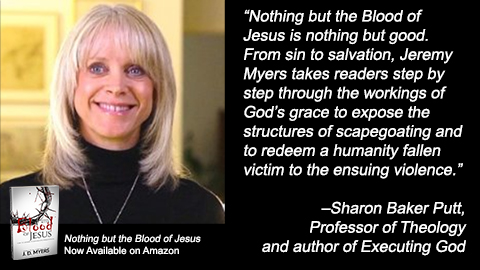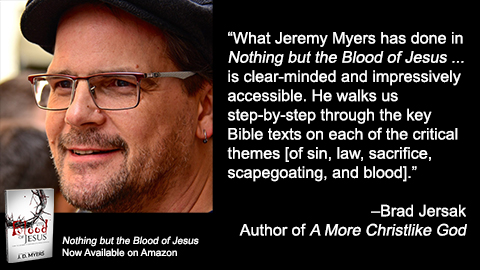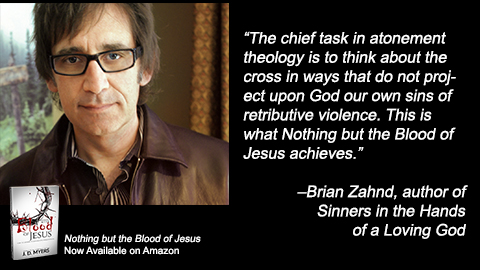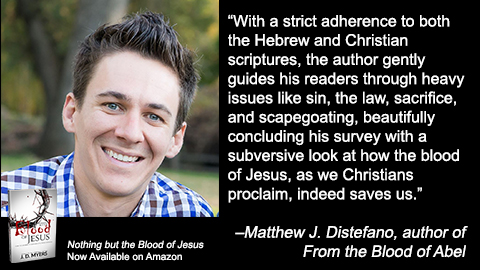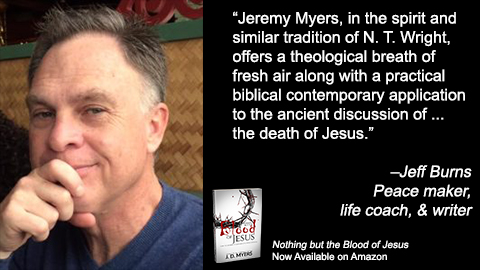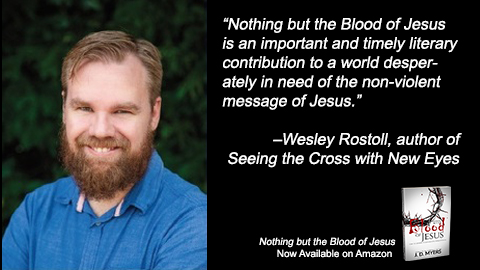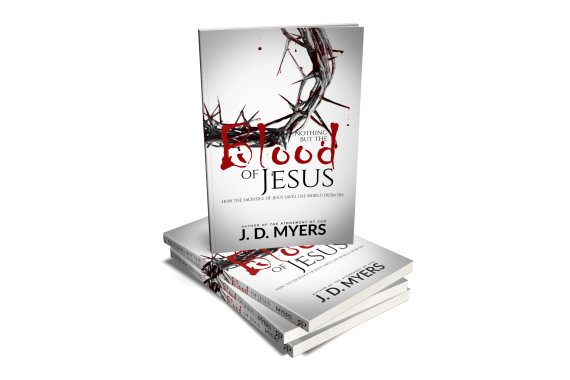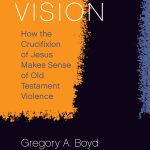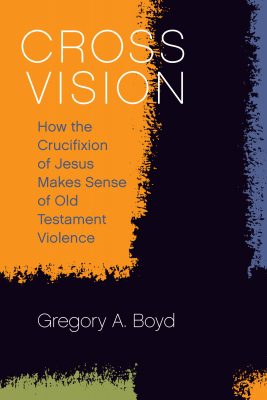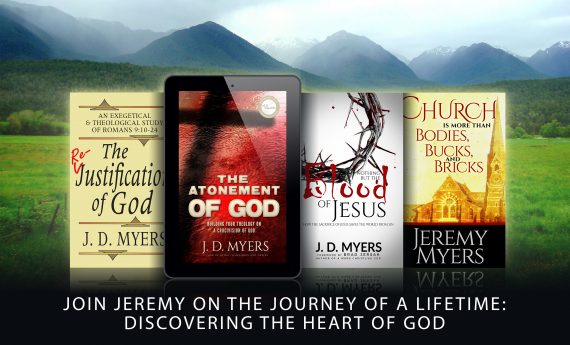This is part of an ongoing series where I briefly interview a theologian, pastor, author, or Bible scholar that I highly respect, and ask them to tell us a bit about themselves, their most current teaching project, and the one most important truth (the hack) they wish every Christian could learn.
I call the series “Hack the Theologian.” This doesn’t mean I think these theologians are hacks. Far from it! It means that I am trying to find (and share with you) the one thing that makes them tick, the one insight that keeps them writing and teaching, the one truth they are most passionate about, the one idea that turned their life and theology upside down. You can read the other posts in the series right here.
(Do you know an author I can highlight in this series? Have them contact me!)
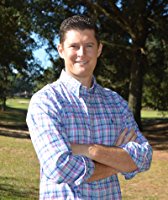
So Let’s “Hack” Brian Wright
Brian Wright is an adjunct professor at Palm Beach Atlantic University and New Orleans Baptist Theological Seminary, and has been a nationally known speaker, sharing the stage with such noted celebrities as Patricia Heaton, Nick Cannon, and many others. He currently lives in Pensacola, FL, with his wife and four children.
Here are my questions to Brian…
1. Can you tell us who you are and what you do in 40 words or less?
I am a pastor, professor, author, public speaker, and prison chaplain. I’m married to Daniella Wright and we have four amazing children. If I had spare time, I would be playing sports with friends or at the beach with family.
2. Tell us something about yourself that few people know.
My first paid job was cutting curly fries at a local flea market.
3. What is the best book you have read this past year? (It doesn’t have to be theological!)
The third volume of the collected letters of CS Lewis.
4. You have a new book out. Tell us a bit about it. What is the main point and what do you want people to learn or do?
Communal Reading in the Time of Jesus argues that communal reading events were a widespread phenomenon in the Roman Empire during the first century AD. This is important for a number of reasons, such as overturning the predominate idea that only a small segment of society in certain urban areas could have been involved in such literary activities, but for believers today my book helps us understand why there was such an emphasis on reading communally in the New Testament (1 Tim 4:13; Col 4:16; 1 Thess 5:27; Rev. 1:3; etc.). Therefore, I hope it encourages people to reinstitute this important spiritual practice and retrieve this great tradition of reading together.
5. Karl Barth was once asked to summarize his life’s work in one sentence. He answered, “Jesus loves me, this I know, for the Bible tells me so.” How would you summarize your life’s work? To put this question another way, if you could get people to understand just one idea, what would it be?
In Christ, only faith working through love counts for anything.


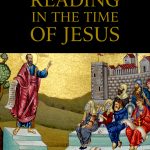

 In one of his recent email newsletters (
In one of his recent email newsletters (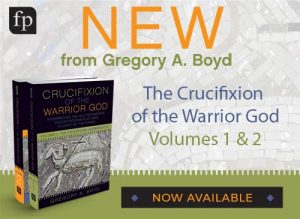

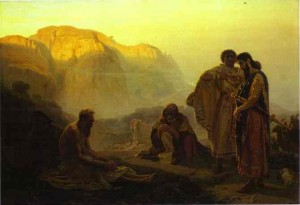 “But” (as my wife pointed out to me once), “What about God’s deal with the devil at the beginning of the book? Didn’t God allow Satan to do all these bad things to Job? How is this not divine violence?” Excellent point, Wendy! My answer is that this proves that the book of Job is actually about the satanic activity of accusing and blaming others in the name of God. Satan is there in the beginning as the accuser, and the satanic presence is seen throughout the book as everyone is accusing Job, and Job is accusing God.
“But” (as my wife pointed out to me once), “What about God’s deal with the devil at the beginning of the book? Didn’t God allow Satan to do all these bad things to Job? How is this not divine violence?” Excellent point, Wendy! My answer is that this proves that the book of Job is actually about the satanic activity of accusing and blaming others in the name of God. Satan is there in the beginning as the accuser, and the satanic presence is seen throughout the book as everyone is accusing Job, and Job is accusing God. I had a very similar conversation with Greg at the ReKnew conference, in which he stated that he also leaves natural disasters completely unexplained. He says, and I agree, that there are too many variables to determine the cause of any natural disaster. The only exception, Greg says, are the natural disasters found in the Bible. The Bible claims that these (in some way) came from God, and so therefore, they did. Call it Satan, the destroyer, or God withdrawing, these, and only these, natural disasters have some sort of divine origin. For many reasons, I find this explanation highly troubling, and extremely unhelpful. After all, if the CWG thesis helps us understand the Bible but not life, then it is not helpful and cannot be accepted.
I had a very similar conversation with Greg at the ReKnew conference, in which he stated that he also leaves natural disasters completely unexplained. He says, and I agree, that there are too many variables to determine the cause of any natural disaster. The only exception, Greg says, are the natural disasters found in the Bible. The Bible claims that these (in some way) came from God, and so therefore, they did. Call it Satan, the destroyer, or God withdrawing, these, and only these, natural disasters have some sort of divine origin. For many reasons, I find this explanation highly troubling, and extremely unhelpful. After all, if the CWG thesis helps us understand the Bible but not life, then it is not helpful and cannot be accepted.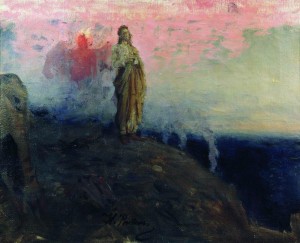 Frankly, most people, myself included, would rather have the pain and punishment come directly from God. If God is going to let satan kill people, God should have the respect for humanity to just do it Himself. If Greg’s view of God is correct, then I say this to God, “Hey God, man up. Don’t send a hit man to do your dirty work.”
Frankly, most people, myself included, would rather have the pain and punishment come directly from God. If God is going to let satan kill people, God should have the respect for humanity to just do it Himself. If Greg’s view of God is correct, then I say this to God, “Hey God, man up. Don’t send a hit man to do your dirty work.”  Anyway, the death of Jesus is the center of Scripture and theology, and I base everything I think and teach on what Jesus accomplished on the cross. Or at least, I try to. I believe every word of Scripture; I just believe some of these words differently than Greg does. This doesn’t mean I’m wrong, or that he is. It just means there is room for further discussion and humble learning. If Greg decides to continue this conversation, I promise not to mention Girard.
Anyway, the death of Jesus is the center of Scripture and theology, and I base everything I think and teach on what Jesus accomplished on the cross. Or at least, I try to. I believe every word of Scripture; I just believe some of these words differently than Greg does. This doesn’t mean I’m wrong, or that he is. It just means there is room for further discussion and humble learning. If Greg decides to continue this conversation, I promise not to mention Girard.




